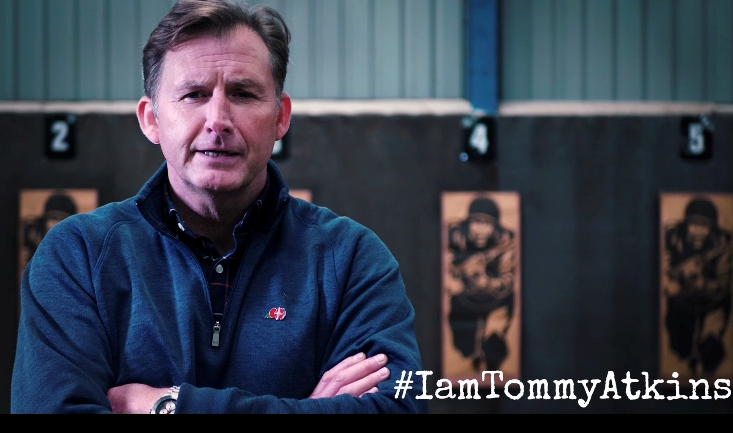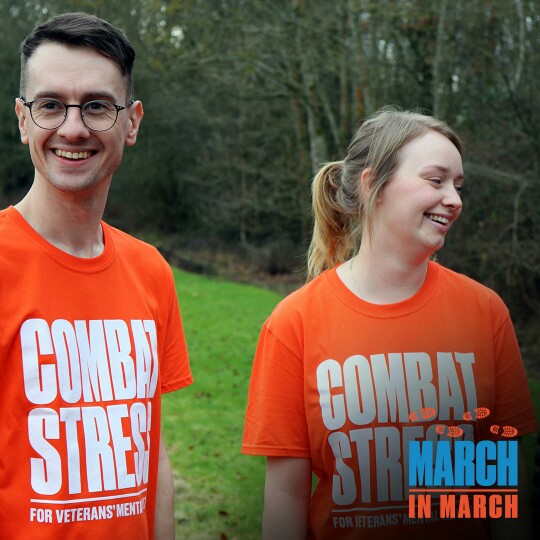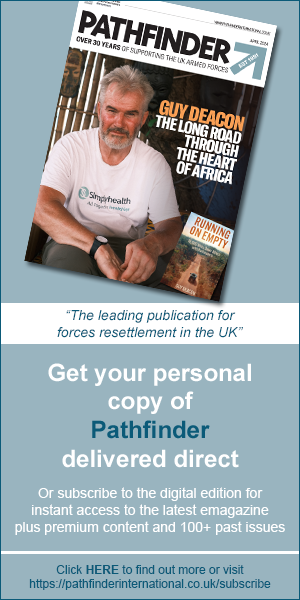Giles O’Halloran looks at what aspects of your skills and experience you can highlight as a military leaver from any service, whether Regular or Reserve
You will be told that civilian employers (in the private or public sectors), will appreciate the skills and experience that you can bring to any role. This is very true, but in order to get through the door, you need to think about what you can do that outshines the next candidate, and what it is that the military is able to nurture or instil in you that makes you the best person for the job.
Much of what you can do that is unique and special will not only come from the fact you have served in the military, but also because you have served in a particular service or corps. These differentiators differ so much even between branches and corps within each service, that it would be very hard to bring all these out in one article.
Effective Communication
From day one of training, communication is a key part of service life. Whether understanding radio procedures, how to formulate and give orders, relay messages or put your across your thoughts to others, communication is a key part of military and therefore operational success. Do not forget that you can therefore engage with others, provide information in a succinct manner, but also get the important messages across. These are just as vital in corporate infrastructures as they are in the modern battlespace, so consider these when you are asked to qualify your ability to communicate.
Real Teamwork
Being a team player is something that every company looks for. They want people who are able to work with others and ensure that work gets done. Service people understand team work better than anyone else. They have to be able to create teams, work under real pressure, look after one another and ensure that as a team, the objectives are achieved. Whether this is an infantry unit making a section attack, an armourer team loading an aircraft or naval engineers replacing a turbine, every service member will have worked in an effective team. You will know what real team work looks like, what it feels like and should think about these as examples when asked.
Leadership
Without doubt, leadership is a specialist capability actively assessed and developed in the services. Employers understand this at a higher level, but it is putting this experience and capability into context that employers really need to understand. Employers may simply focus on the rank (hierarchical) style of leadership, but it is worth pointing out the realities of leadership that they may not appreciate at first glance.
At an early stage in the leadership model, JNCOs are given a great deal of responsibility. The Corporal rank runs the army, I have seen this as a reality and it is the fundamental level of leadership that can also apply to civilian companies. Most companies will have managers who manage a maximum of 8-12 people. This is what we can span of control, so if managers at most levels are doing this, a corporal will have done this quite early on before progressing to sergeant and further.
The corporal will train, assess, motivate and manage their staff. Not only do they do this, but they are responsible for thought leadership as well – conducting training plans, leading section level decisions on the battlefield and working with leadership at higher levels to put decisions into workable solutions.
They can also be specialists, providing not only leadership but helping think problems through, analysing issues or leading small specialist teams. Never take this for granted as if the services are doing this at JNCO level, just think how this translates as you progress further up the ranks. Your experiences are capabilities are a real value add to employers.
Adapt and Overcome
The above maybe a cliché in the military, but it is a survival option in the civilian world. Change is part of everyday working life and there is even a professional body that manages the careers of change managers or consultants. The current economic environment means that businesses need to adapt and change in order to survive. Therefore, being from a military background, where you often have to deal with issues and adapt to resolve them, you will be well armed for this world.
Think about being on operations and not having all the kit you need to get the job done. What do you do? You use your initiative, you think around the problem, you adapt to circumstances etc. – think about examples of when you have had to do this, they will set you in good stead if you maintain that as a mindset in your civilian career. Change is a constant and you are better armed to adapt.
Strategic Thinking
The ability to take a step back from a situation, appreciate all the alternatives and then plan a way forward is a rare skill. Whether you are planning a platoon attack against an objective, preparing flight operations for a future FOB or a ship to ship transfer at sea…all these things require prior planning in order to succeed.
Strategic thinking is often an overused piece of jargon in corporate life, but you are likely to have a greater understanding and be able to apply this above and beyond the capability of civilian colleagues. Strategy usually applies to the high level planning in organisations, but strategic thinking is also about implementing the plans to make operational and tactical imperatives work effectively. Do not therefore take this for granted as a capability you will excel in.
Working Under Pressure
It is a simple one but something you perhaps take for granted. One of the things you can deal with that most civilians do not handle well, is working under real pressure. People often speak about working under stress conditions, meeting deadlines and it is often covered at the interview stage. However, take a step back and look at what you have done and where you have done it. There is no doubt in my mind that you will be able to articulate and illustrate some excellent examples of this to a potential employer.
Nothing hones the mind or your capabilities as a professional more than working in a hostile and often dangerous environment. There will be stress of a different kind in civilian employment, but this is likely to be something you can deal with if you apply what you have learned in your professional military career.
Delivering Results
Companies want results and they want people who are able to deliver. As a professional in the services, delivering against the task or mission is second nature. You are not only honed to do so, but you remain committed to the objective and take responsibility for achieving that goal. These are key things an employer will look for and again it will often be part of the interview process. So, it is worth thinking about what you have achieved, what you have been tasked with doing, how you achieved your goals and what you learned from any exercise or mission. Showing you can achieve of exceed objectives set make you an attractive proposition to potential employers.
Critical Analysis
Analysis is a modern requirement in most jobs. It is about taking raw data, transforming it and making sense of it. However, service personnel can often take it that one step further by being able to critically analyse information – not only understanding what data means, but the implications, the reality behind them and how to apply it appropriately. Critical analysis is a rare skill and if you can show this in examples at interview or in your daily job, it will serve you in good stead in civilian employment.
Courage
This is a brief word that can mean a great deal. The fact is that courage takes different forms, and is not just about the courage you need to advance or get a task completed under fire. It can also be about making the right decisions for the right reasons, taking an ethical stand or perhaps following through on a difficult decision and making things happen when times are desperate.
You know what this means and can provide hard evidence of this. So don’t be afraid to use the courage you have as professionals in helping drive a business forward, it is you that make things happen and courage is a key part of leadership in the civilian world as well. It is often about making hard business decisions that affects the lives of those around you.
So, I hope that in this brief space I have got you thinking about what you can do that makes you unique and special. I cannot highlight all the great things that you can do that employers want, but I can at least help show you how to appreciate what you have and how to translate this to civilian employment. I am sure that with reading the above and thinking a little more yourself, you will come up with many more examples, but this is the aim of the article – getting you to critically evaluate what makes you an attractive proposition to an employer because of your professional experience to date.
About The Author
Giles is an experienced HR and Recruitment professional. He started life as a recruitment consultant supporting a number of Blue Chip organisations, before joining IBM and developing his HR experience in a number of key roles. He has since worked for two global recruitment organisations in senior HR roles and is now an independent HR and Employment consultant. Giles has also provided CV writing, interview and network support to private and public sector clients for over a decade.






